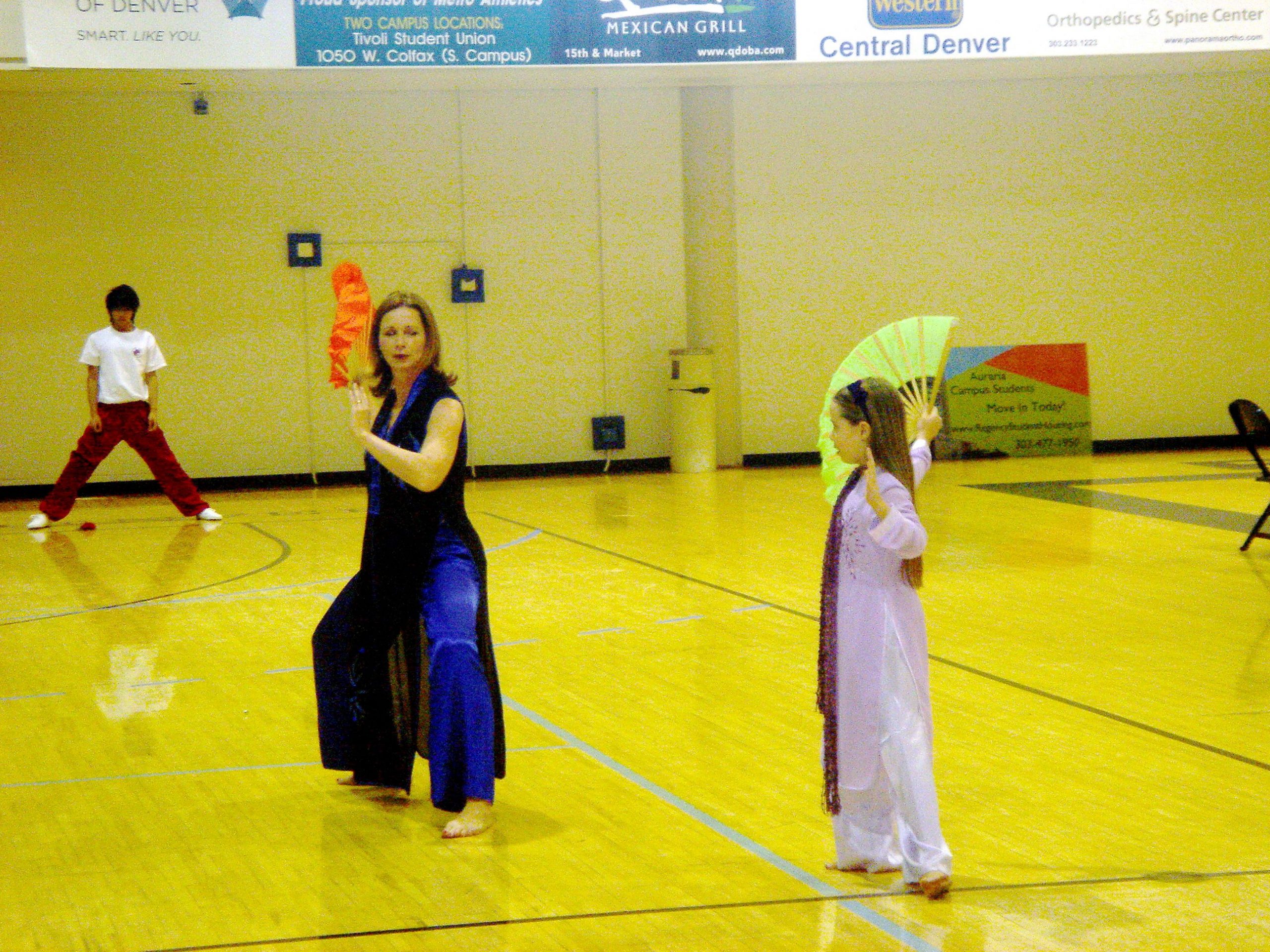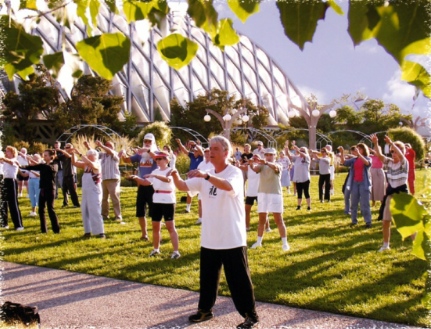Benefits of Tai Chi
“Tai Chi is in everything….and everything is in Tai Chi.”
Ancient Chinese Saying
People of all ages study Tai Chi to relax, to look and feel younger, and to improve abilities in a wide range of physical activities as well as improving memory and concentration skills. Tai Chi is intended to be an exercise form that you can maintain as a life-long practice. It can be strenuous exercise, or slow, meditative movement. It can be practiced almost anywhere, and can be integrated into almost any lifestyle. People of all ages can use Tai Chi to improve strength, balance, and flexibility.
Top Ten Reasons for Practicing Tai Chi everyday Harvard Health Watch
Tai chi is often described as “meditation in motion,” but it might well be called “medication in motion.” There is growing evidence that this mind-body practice, which originated in China as a martial art, has value in treating or preventing many health problems. And you can get started even if you aren’t in top shape or the best of health.
Harvard Women’s Health Watch
Benefits of Tai chi for overall fitness
- Tai Chi Improves:
- Muscle strength
- Flexibility.
- Balance
- Aerobic conditioning
Benefits of Tai Chi for medical conditions
When combined with standard treatment, tai chi also appears to be helpful for numerous medical conditions. For example:
- Arthritis
- Low bone density
- Breast cancer
- Heart disease
- Heart failure
- Hypertension
- Parkinson’s disease
- Sleep problems
- Stroke


Tai Chi has also shown a wide range of other benefits, including increased strength and functional mobility, flexibility, psychological well-being, sleep enhancement, and increased aerobic functioning. Exploratory studies are underway on the effects of Tai Chi on immune function, bone loss, arthritis patients and others with immune disorders.
Tai Chi, Flow States and Long-term Physical Activity Adherence
Research presented at Oxford in 2013, showed Tai Chi Ch’uan may offer a reproducible method by which anyone, not just athletes, dancers and musicians, can experience flow states of consciousness (commonly known as a runners high.) Tai Chi changes the way practitioners perceive health behaviors to being inherently enjoyable in themselves, thereby enhancing motivation and readiness to change behavior and pursuing long-term compliance of healthy lifestyles. Any health benefits become a very beneficial side effect. Healthy, fully functional people are money in the bank for the whole society.
None of us is getting any younger. The sooner you get some exercise, the better.
By investing a little time in training, you can learn a comprehensive and enjoyable exercise that you can do for the rest of your life – anytime, anyplace – without expensive equipment. All you need is your mind and your body!
Come see what the mind/body secrets of Tai Chi can do for you! Please feel free to call us with any questions or to discuss a specific need. The Tai Chi Project is committed to providing the highest level of training, and we will take personal responsibility for ensuring your complete satisfaction. Our phone number is 303-744-7676
Evidence Based Benefits of Practicing Tai Chi
A large review study looked at 77 randomized controlled trials about Tai Chi or qigong, which included a total of 6,410 participants and found strong evidence that Tai Chi and qigong offer benefits for cardiorespiratory fitness, balance and fall prevention, physical function, bone health, mental health and quality of life.
Exploratory studies are underway on the effects of Tai Chi on immune function, bone loss, arthritis, memory and immune disorders.
Improving Balance and Physical Activity Levels
A review of 19 studies showed that Tai Chi may be a cost effective exercise program for improving balance and increasing physical activity in almost all of the following measures: fear of falling, single-leg stance, posturography, rate of falling, flexibility, walking velocity, Berg Balance Scale, Timed up and Go, Functional Reach, ankle and knee joint strength and range of motion, and in showing that vigorous individuals benefit more than older frail individuals.